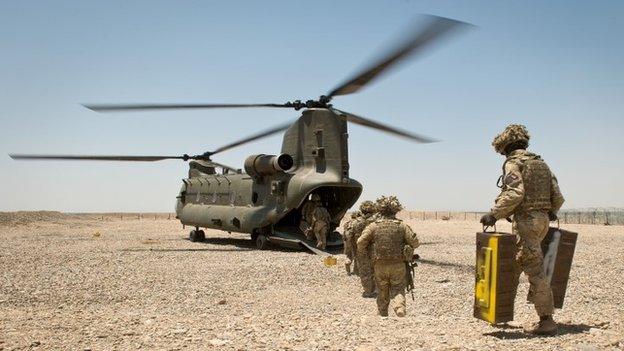Armed forces alcohol abuse strategy criticised
- Published
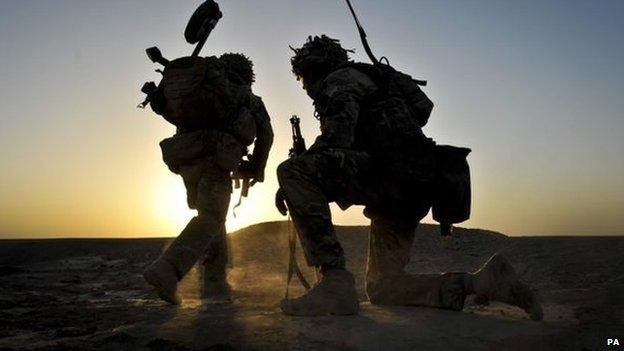
The government's strategy for combating alcohol abuse in the armed forces is ineffective, a top psychiatrist says.
Prof Neil Greenberg, lead on military health at the Royal College of Psychiatrists, said educating personnel about dangers did not stop them from excessive drinking.
Some personnel told the BBC drinking was integral to forces' culture, and could strengthen group cohesion.
The Ministry of Defence said it had launched a review of its policy.
A 2013 study, external carried out by the King's Centre for Military Health Research suggested the alcohol consumption of 65% of the 325 personnel sampled was categorised as "higher risk".
The study also suggested that those with more risky drinking habits were more likely to have mental health problems.
Prof Greenberg, who is also a former Surgeon Captain in the Royal Navy, said: "For many years the military have relied heavily on alcohol education, so for instance soldiers would have to have a brief every year that tells them drinking is bad for them.
"The problem is we know that alcohol education doesn't really work at all, and the evidence from the civilian population is that it's a terribly ineffective way of stopping people from drinking."
The Commons Defence Select Committee recently wrote that the government's strategy had not made any noticeable impact on the high levels of excessive drinking in the armed forces.
The committee said: "We are not convinced that sufficient focus has been given to dealing with the problem at every level of the chain of command.
"We also question whether the Ministry of Defence has examined whether excess alcohol consumption may, in some service personnel, be masking other mental health problems."
'£2 a pint'
Critics argue that the problem is made worse with prices at less than £2 a pint in some military bars.
Some personnel say the problem is more common among those who have been deployed to war zones in combat roles.
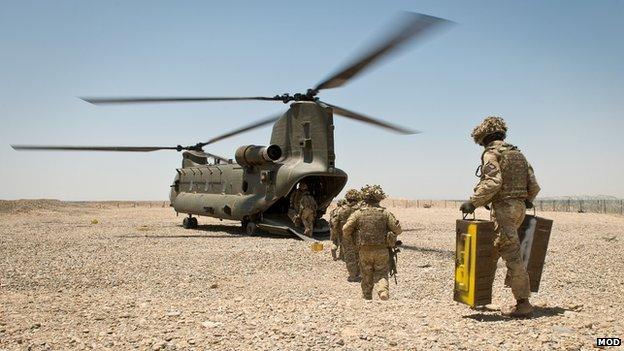
Serving soldiers told the BBC that after going on an operational tour where alcohol is forbidden, they just want to come back and "get off their faces".
Prof Greenberg said the military could be encouraging excessive drinking by having customary practices that involve alcohol.
"I think one of the first things that needs to be done is to investigate a little more about why it is that people drink heavily in the military," he said.
"If it is that the military culture encourages people who weren't heavy drinkers before to start drinking heavily then really something needs to be done at a very early stage to encourage people to drink in moderate and socially acceptable ways."
Research, external has also suggested violent offending by military personnel is "strongly associated" with post-deployment alcohol misuse.
A 2013 study, funded by the Medical Research Council and the Ministry of Defence, found violent offending was more than three times higher among personnel who demonstrated signs of alcohol misuse than in personnel with no alcohol problems.
'10-15 pints'
Steven Van Derbank, 29, who used to be a non-commissioned officer in The Royal Electrical and Mechanical Engineers, said it was rare to go 24 hours without having a few drinks.
He said: "The drinking culture in the military - literally from when you start - everything you do really is rewarded with alcohol.
"On average on a bad day - where I wasn't really in the mood - it was probably four to five pints a night.
"On a good day it could be trying to keep up with a lot of people who obviously do drink a lot more, and it could be anything from 10 to 15 pints a night."
But Air Vice Marshal Ray Lock, a retired senior RAF officer, told BBC Radio 4's Today programme sometimes there was "good reason to use alcohol within moderation whilst you're in service".
"And of course after incidents, after combat, when you get back from tours, we do know from the whole decompression process of restoring you back into your normal daily working life, that revolving a little bit around alcohol can also be quite helpful."
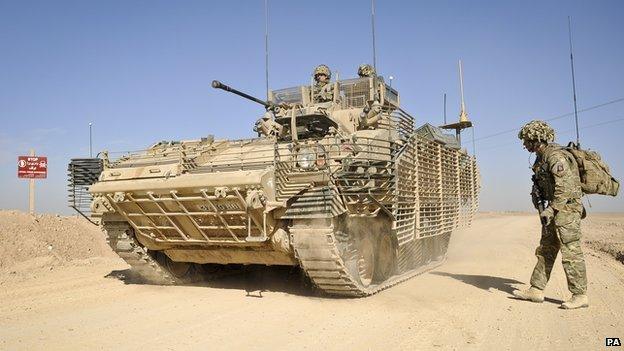
The Ministry of Defence said it was teaching personnel about the harmful effects of drinking too much through health fairs and awareness campaigns.
A spokesman said: "As within wider society, there is no quick fix to reduce alcohol misuse in the armed forces.
"We are taking action by educating personnel on the dangers of alcohol misuse to help them make informed decisions, and have introduced extensive policy and guidance for commanders.
"We have rigorous processes in place to discipline personnel who make poor choices regarding alcohol consumption, and treatment mechanisms in place for those with genuine alcohol problems.
"We are going further, and this summer launched an alcohol working group to review policy and data to identify what more we can do to tackle alcohol misuse in the armed forces."
- Published22 January 2015
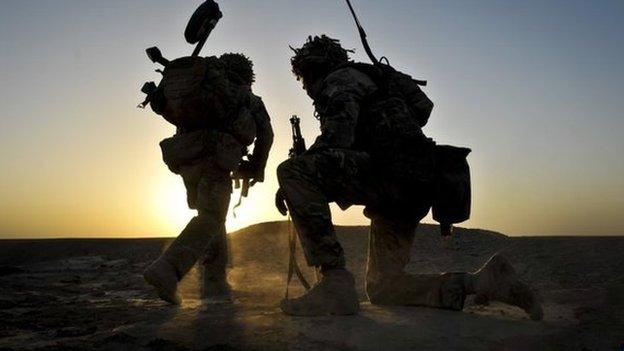
- Published29 October 2014
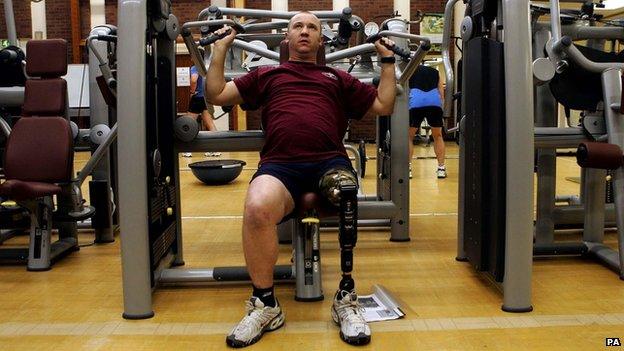
- Published12 May 2014
